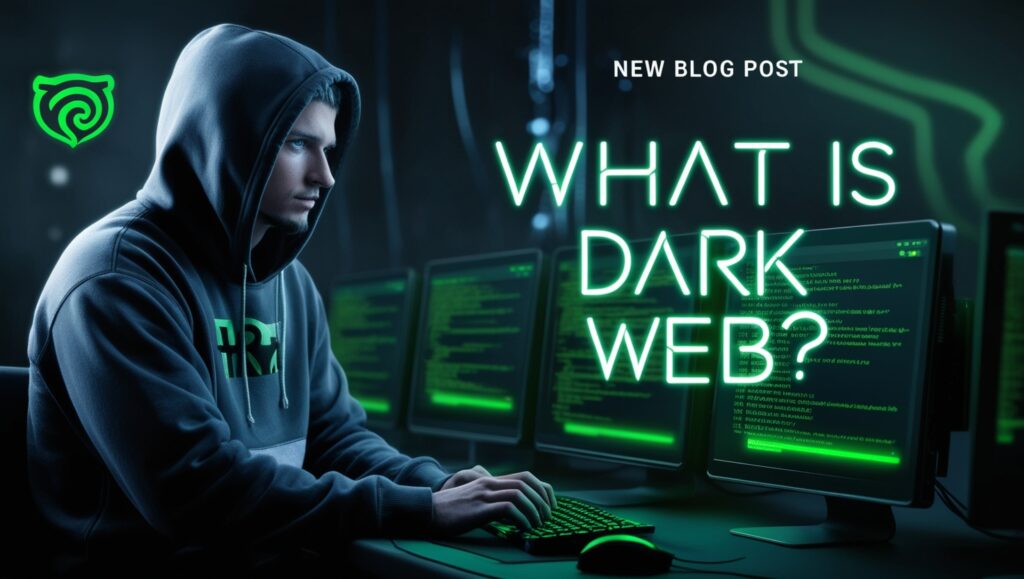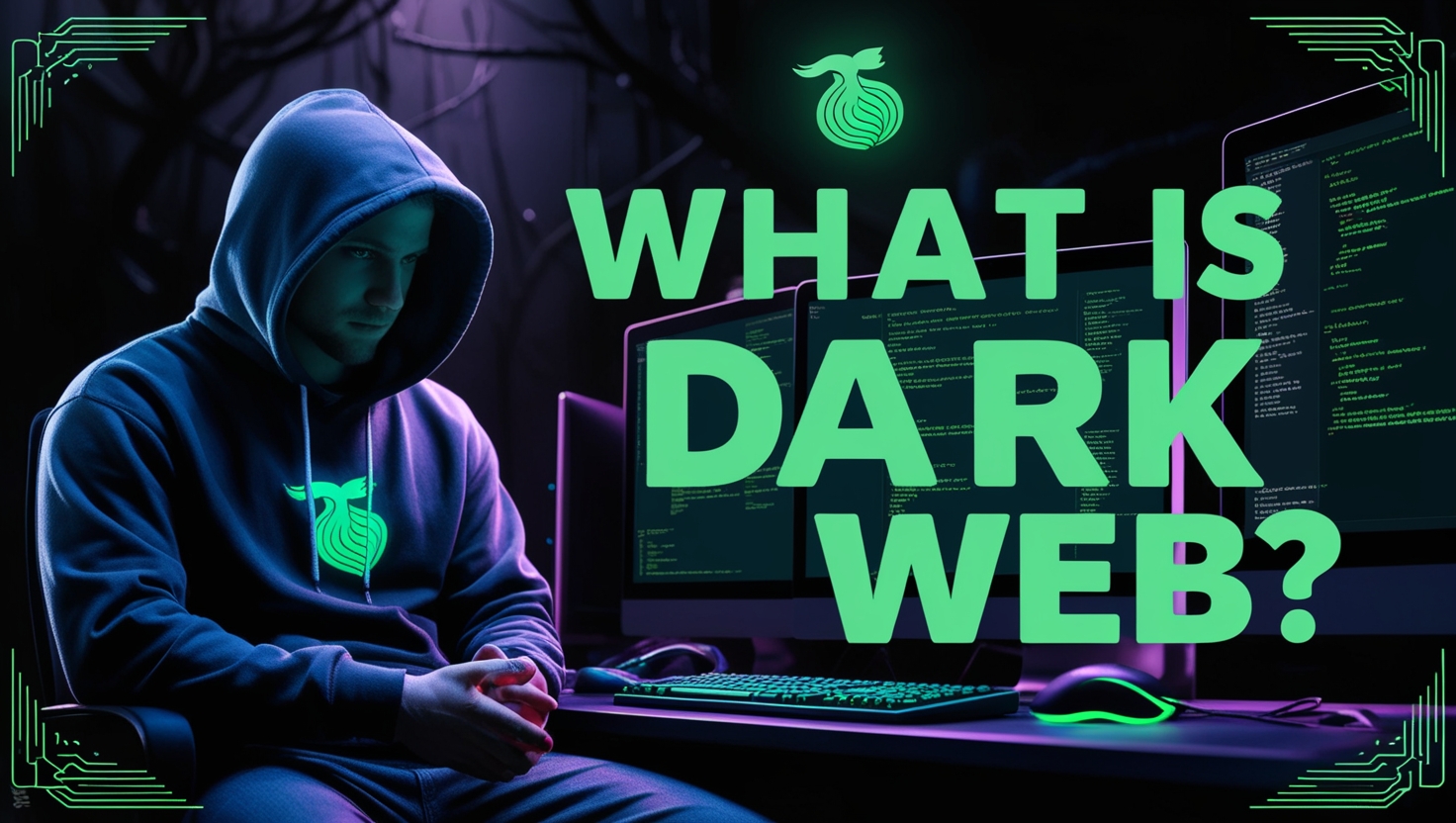1. What is Dark Web?
The internet is divided into three layers: the surface web, the deep web, and the dark web. The dark web is a hidden part of the internet that isn’t indexed by traditional search engines like Google or Bing. It requires special tools such as Tor (The Onion Router) or I2P (Invisible Internet Project) to access. While the dark web is often associated with illegal activities, it also serves as a safe space for privacy-focused individuals, journalists, and whistleblowers.

2. Dark Web vs. Deep Web: What’s the Difference?
Many people confuse the dark web with the deep web, but they are not the same. Here’s the difference:
- Deep Web: This includes all online content that is not indexed by search engines. Examples include private emails, online banking portals, medical records, and academic databases.
- Dark Web: A small portion of the deep web that requires special software like Tor to access. It is known for anonymity and secrecy.
3. How Does the Dark Web Work?
The dark web operates using onion routing, a technology that encrypts and routes internet traffic through multiple servers worldwide. This process ensures user anonymity. The most common tool for accessing the dark web is Tor, which allows users to visit .onion websites without revealing their IP addresses.
4. What Can You Find on the Dark Web?
The dark web hosts a wide range of content, including:
- Legal Content: Privacy-focused forums, whistleblowing platforms, and encrypted communication tools.
- Illegal Content: Black markets, hacking forums, counterfeit documents, and stolen data.
- Restricted Information: Censored news, leaked documents, and politically sensitive discussions.
5. How Do People Access the Dark Web?
To access the dark web, users need specialized tools such as:
- Tor Browser: The most popular software that allows anonymous browsing of .onion sites.
- I2P (Invisible Internet Project): Another network used for encrypted communication.
- VPN (Virtual Private Network): Adds an extra layer of security by hiding IP addresses.
6. Is It Illegal to Browse the Dark Web?
Accessing the dark web is not illegal in most countries. However, engaging in illicit activities such as buying drugs, weapons, or stolen data is illegal. Many governments monitor dark web activities to track cybercriminals and lawbreakers.
7. Dangers and Risks of the Dark Web
Browsing the dark web comes with significant risks, including:
- Scams: Many sellers on dark web marketplaces deceive buyers.
- Malware and Viruses: Downloading files from the dark web can infect your device.
- Law Enforcement Monitoring: Authorities track illegal activities on the dark web.
- Hackers and Cyber Threats: Personal information can be compromised.
8. Dark Web Marketplaces and Illegal Activities
Some dark web marketplaces facilitate illegal transactions, including:
- Drugs and Weapons: Banned substances and firearms are sold anonymously.
- Stolen Data: Credit card details, personal identities, and hacked accounts.
- Fake Documents: Passports, IDs, and counterfeit currency.
- Cybercrime Services: Hacking tools, ransomware, and phishing kits.
9. Ethical and Legal Uses of the Dark Web
Despite its bad reputation, the dark web also has legitimate uses, such as:
- Whistleblowing: Secure platforms like SecureDrop help whistleblowers share information anonymously.
- Privacy Protection: Journalists and activists use it to avoid surveillance.
- Censorship Resistance: People in oppressive regimes access uncensored news.
- Cryptocurrency Research: The dark web plays a role in the development of blockchain technologies.
10. How to Stay Safe on the Dark Web
If you decide to explore the dark web, follow these safety tips:
- Use Tor and a VPN: This adds an extra layer of security.
- Avoid Downloading Files: Many files contain malware.
- Do Not Share Personal Information: Stay anonymous to protect your identity.
- Use Encrypted Communication: Tools like PGP encryption ensure privacy.
- Stay Away from Illegal Activities: Engaging in crime can lead to serious legal consequences.
11. Conclusion: Should You Explore the Dark Web?
The dark web is a double-edged sword. While it offers privacy, anonymity, and a platform for free speech, it also harbors illegal activities and cyber threats. If you choose to explore it, take necessary precautions and use it responsibly.
12. FAQ
Q1. What is Dark Web used for?
The dark web is used for both legal and illegal activities, including secure communication, censorship resistance, and black-market transactions.
Q2. Can you be tracked on the Dark Web?
Yes, government agencies and hackers may track users, especially if they engage in illegal activities or fail to use proper security measures.
Q3. Is it safe to use the Dark Web?
It depends. While it offers anonymity, the dark web is filled with risks like malware, scams, and cybercriminals.
Q4. Can I access the Dark Web on my phone?
Yes, but it is not recommended. Using Tor on a mobile device is less secure than on a computer.
Q5. Is Tor illegal?
No, using Tor is legal in most countries, but some nations restrict its usage.

Leave a Reply